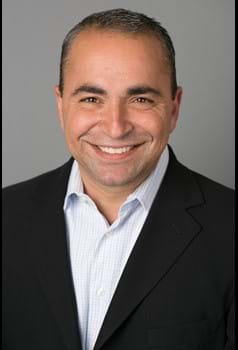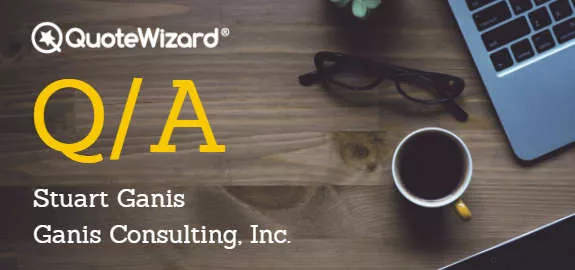We recently spoke with Stuart Ganis, CEO of Ganis Consulting, Inc., about how agents can maximize opportunities with lead programs.
One factor is being able to overcome price objections. We found agents will often pursue their most desired consumer first. These rates are the most competitive, but convert at the highest premium.
Filters help line up the process for finding the ideal consumer with prime rates and high premiums. A specific filtered search would probably look something like this:
- Over 35 years old
- No incidents
- Married
- Multi-car policy
- Homeowner policy
Although specificity is usually beneficial, filtering could produce a lower volume of leads. More general filtering options will likely yield a higher lead volume and create more sales opportunities.
For example:
- Over 25 years old
- Two or fewer incidents
- Current insurance policies
Maximize your opportunities with more leads and compete for more business by creating added value beyond the price tag.
Agents fall into the mentality that consumers acquired by lead programs are price shopping and competitive rates are the only way to convert that lead. Any agent, regardless of rates, can compete and win business with a lead program. All it takes is finding an opportunity, and seizing it.

QuoteWizard: Why should an agent select general lead filters that may not necessarily have the most competitive rates or highest premium?
Stuart Ganis: One thing I’ve learned is that, regardless of filters, you need to build opportunities and get creative whenever possible. If I have an 18-year-old child with no tickets, but only one year of driving experience, I could take that opportunity to write a multi-car auto policy. Great salespeople will advise the consumer that “junior” is better off being on the family policy. This should lead to quoting the entire household, then rounding out home, renters, or other policies in the household. We all want to give our companies profitable business, but converting someone that pays $300/6 months is a lot more difficult than converting someone paying $2,000.
QW: How do you overcome a price objection with non-competitive rates?
Ganis: The best way is avoiding statements like, "let’s see if we can save you money” or, "let me see if we can beat your rate." The moment you do that, you’ve admitted that you, your agency, company, service, claims, ease of use, billing, policy, and everything else you offer is only as good as that of your competitors. You have no differentiation and no value-prop. You’re just “average.” You’ve commoditized your products and services. Only companies spending billions can commoditize auto insurance and make money.
Change the conversation to “best coverage, right price.” Telling someone you’re going to “save them money” is like throwing darts at a dartboard. A mentor of mine always said, “Stuart, if you need the lowest price to sell something, you’re not a salesperson." If that’s all we have to offer, we might as well just hire robots to enter data and spit out prices.
You have to be competitive, but you don’t have to be the least expensive every time. Speed, follow-up, and effective salesmanship are imperative to converting internet leads. One other thing that you wouldn’t expect to be as important though is the power of belief.
If agents believe they need the lowest rate to sell a policy, then they’re right. If agents believe they can convert if they’re in the ballpark, then they're right. See where I’m going here? Every agent reading this interview has acquired clients off of something other than price. Duplicate that and believe you can do it on every call.
Rather than selling price alone, sell the benefits too. I can talk about this one for days, but let’s save it for another time.
QW: How do you retain clients that pose a price objection at the time of renewal?
Ganis: What we’ve learned is that this usually speaks to something much bigger than price. We talked earlier about adding value and differentiating yourself from the competition. The same goes for existing clients.
The best way to avoid this from happening is ramping up your marketing strategy. Keeping in touch with clients throughout the year will keep them from shopping because they know you’re there.
If clients type your agency’s name into Google and you’re not the dominating page, chances are they’ll shop again at the renewal period. In order to retain clients nowadays, they need to see your presence on Google, social media, in their inbox, and even in the actual mail.
Annual policy reviews are also very helpful. You can even suggest them at mid-term and not necessarily only at renewal. You can review their coverage, see if anything has changed, discuss other lines of business, and create a high-quality touch.
When I was a kid, my parents were with a big captive carrier. They received a calendar in December with a Happy Holidays card, spring cleaning tips in the spring, and so on and so forth. That calendar was on our refrigerator year-round and that agent was always on the top of his game.
Granted, you’ll always have a few clients calling about a renewal increase at the end of their term. If it’s happening often, you need to reevaluate your marketing strategy and add value to the relationship. Otherwise, you’re turning into commodity provider, and that’s a dangerous trap to fall in.


© QuoteWizard
157 Yesler Way, Ste 400
Seattle, Wa 98104
QuoteWizard is a
LendingTree company.